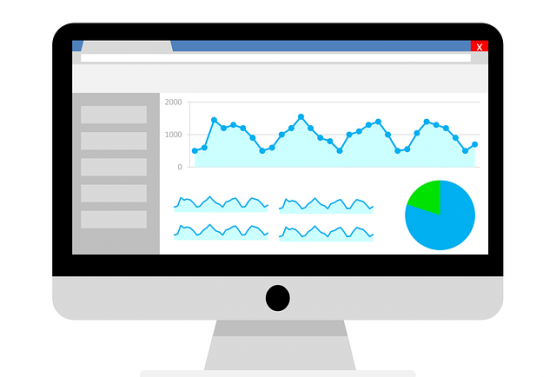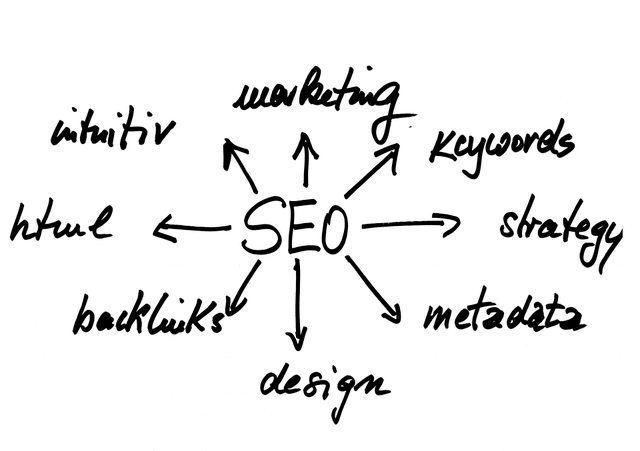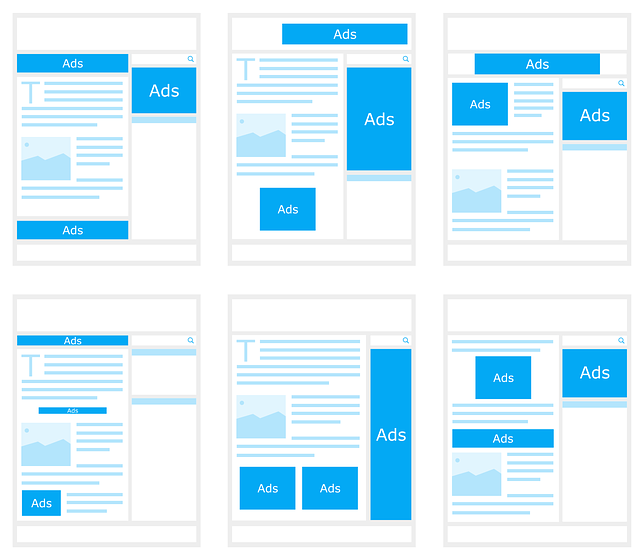
Which is better – investing in SEO or Google Ads? While it might seem like a very simple question, there is no such thing as a simple answer. In fact, according to a recent report based on just over 1,000 marketing professionals and business owners whose both organic and paid search tactics the results were nearly tied.
More than three quarters said both were effective, however, if forced to pick just one, 36% lean towards SEO and 64% opt for Google Ads. Some of the criteria each of the approaches were based included effectiveness, benefits, importance, simplicity and cost. However, it should also be noted that a separate survey found that only 30% of Small Business Owners had an SEO strategy. When done well, the cost of SEO and using Google Ads are typically about the same if you have to hire an agency to perform the SEO and a writer to develop all your content each week.
So, when it comes to choosing to focus on SEO or Google ads, how do you determine where to put your efforts? The short answer is most businesses should be implementing both strategies. Each strategy has advantages and disadvantages over the other. But assuming you only have the resources to pursue one strategy first, let’s take a few minutes to compare and contrast the two.
The Pros and Cons of SEO
The acronym for Search Engine Optimization, “SEO,” is used to create website pages that are geared towards improving how high your website ranks in search engine results. With SEO, you can target keywords, and their synonyms, to ensure that your website is relevant to the people who are ready to enlist your services or purchase your products in your target area. Generally, the use of organic (non-paid) SEO means that a website will have more site guests and thus higher conversions because people will trust a site that ranks on its own.
Organic SEO can be achieved in a myriad of ways but there are some SEO tactics that are of more value than others. These high value SEO tasks include actions such as:
- Lowering the loading speed for your website
- Creating engaging content on a regular basis
- Optimizing internal site links, titles and headings
- Taking actions to improve site guests’ experiences through various forms of content
- Obtaining backlinks from other authority websites through content marketing
Since many companies do not have an SEO strategy, just having one AND following through with it will give you an edge over your competition.
 The Pros of SEO
The Pros of SEO
- Organic SEO allows you to target both search engines and local map results. A Google ad will only show 1 in 4 map listings, while SEO offers multiple opportunities. In addition, there can be from 0-6 (with a prime keyword perhaps 8) ads on a search results page, but there are always significantly more results shown due to organic SEO.
- When you work with PPC (Pay Per Click) strategies such as Google Ads, when you stop paying for ads, your traffic will immediately drop. However, with SEO your listing will continue to rank, long after you have published any form of new content. Better yet, the more content you create the better visibility in SERP (search engine results page) you will have. Plus, the more you focus on your SEO strategy the higher your traffic and growth will be.
- Ranking in the SERP is a result of correctly identifying the keywords for which prospective clients are using to locate your business. Once you have determined the prime keywords for industry and applied this information to your website content with a solid content marketing strategy, your business is in the perfect position to solve the concerns of your guests.
- Because SEO is a long-term investment, it helps build brand credibility and ultimately recognition.
- It’s free (assuming you LOVE to write)! Organic SEO doesn’t cost you anything- except the time invested to incorporate your keywords into your headings, website content, metadata, ALT tags and other behind the scenes features of your website. Consequently, once this is done, you have a site that is designed to draw in guests without paying for a Google Ads campaign. One caveat- organic SEO can cost if you opt to hire an SEO team to craft and carry out your SEO strategy.
- If you consistently add new blog posts to your website (i.e. consistently, several times a month) then organic search increases over time creating a compounding effect.
In one survey with consumers, it was found that 70% frequently click on organic results – this is good news for the SMB that is willing to invest in a solid SEO approach.
Cons of SEO
Like everything, there are pros and cons to SEO especially if it is your only tool for building your company’s audience and recognition. The most common negatives of SEO are-
- You have to be patient – It takes at least 6 months to see and ROI on your SEO campaign. Organic SEO doesn’t take place immediately. It starts slow and often moves slowly, but like the rabbit and the hare, slow and steady wins the race, and with time organic SEO will become large and indestructible.
- You must be ready to write – Posting a few pages or articles on your website one time won’t cut it – you need to have multiple posts a month that are written around target search phrases for your industry. They need to be fairly long length – ideally around 2,000 words each, and be really well written. Often people have the misconception that after an SEO expert “magically” optimizes a few things on their site one time that their site will rank #1 on Google. That is very rarely the case these days, although 15+ years ago, when SEO was less complicated and there were less website competition and even less sites utilizing SEO, that was often possible.
- Google Penalties – When Google decides to release updates such as Hummingbird, Penguin, Panda, and others it can cause sites that have previously ranked high in SERPs to drop into depths of the Web. However, this just means that one must be vigilant to consistently produce quality information and implement proper SEO to help Google find your site. By adhering to “White Hat” practices rather than “Black Hat” (trying to beat the system through unscrupulous methods), you can ensure your SEO efforts garner the desired results.
The Pros and Cons of Google Ads
Google Ads, formerly known as AdWords, is a form of PPC advertising. The ads are prompted based on keywords and the location from which one types in a search query. When your pre-selected keywords are typed in a search bar, then your ad will show up. However, keep in mind that obtaining those keywords in Google Ads isn’t the same as choosing to use specific words or phrases on your website in order to boost SERP. With Google Ads obtaining those keywords is much like an auction and you have to compete against other businesses for the keyword(s) as well as the amount of advertising space. The key is to have an expert to help you set up the Google Ad campaign and monitor and optimize it regularly so that you get your cost-per-conversion as low as possible. It typically takes at least 6 months to get a campaign to produce a return on your investment, although you will see increased traffic to your website immediately, unlike with organic SEO.
 The Pros of Google Ads
The Pros of Google Ads
- You can reach more customers at the exact time they need you. In traditional commercial placement, your potential client may see your ad whenever they type in a query for your services.
- Google Ads make it easy to measure how effective your investment is. You can set up conversion goals with landing pages, in addition to being able to track every step of the campaign. When you set up your Google Ads campaign, just be sure to set up conversion tracking for your key website actions such as filling out a contact form or completing an online sale.
- Remarketing. Google Ads makes it easy for you to retarget people who visit your website but don’t make a purchase. This is done by strategically placing an ad in SERP pages, social media, and even other websites, etc.
- Google Ads help you build brand awareness. Just because someone doesn’t click your ad, it doesn’t mean they did not see it. In fact, one study found that a Google Ads campaign increases brand awareness by an average of 6.6%.
- Instant results. SEO results take time to increase traffic to your website, while with a Google Ad, you can start a campaign and see an increase in just a few days. In no time at all, you can determine if you should increase your investment, pause it or make changes.
- A Google Ads campaign allows you to target multiple keywords at the same time, depending on the budget and competitiveness of each keyword. SEO deems a focused approach.
Cons of Google Ads
So, you might be wondering where the negatives are in focusing on Google Ads. At first glance, it might seem as though there aren’t any.
- Google Ads are fluid. There will always be new advertisers trying to get the edge over on you, and there will always be companies with more money than you to spend. Long time Google Ad advertisers will up the amount they spend to stay in the top spaces on SERPs. It’s important to have an expert keep up with your campaign or it will lose it’s effectiveness over time.
- Google Ads can get expensive. You have to spend money to keep your campaign performing well. Although, if you are a qualifying nonprofit, Google offers free ad spend – find out more here!
- Google has strict policies about what can be posted or stated. Running ads for certain products or services…such as anything pharmaceutical, can be tricky to do unless you have an online pharmacy license. Also, Google adjusts your CPC higher or lower based on your “quality score.” Your quality score is based on how tightly your ads line up with your search phrases and the landing pages people go to when they click on your ad.
SEO or Google Ads: Which Is Right for Me?
Here are some questions that should help you decide what the best approach is for you:
- Do you have a website? If you are not interested in a full website but prefer to simply have a few landing pages, then Google Ads is likely your best choice.
- What condition is your website in? If your site needs work to have it easily navigated, to help it load faster, or in need of better product descriptions it would be wise to invest some time in SEO.
- How quickly do you want results? SEO will take time to see results but as long as you can produce your own content in-house the cost will be low. Google Ads can have you seeing an increase in traffic in mere days.
- Do your price points outweigh marketing costs? You have to pay each time someone clicks on your Google Ad, and this can get expensive. If you are paying $4 for every click and your product is currently only getting you a $5 profit then you have to determine if investing in a PPC approach is really worth it. Of course, if you sell a product/service where your average profit is $1,000 then that $4 per click is more likely worth its weight in gold.
Choosing between SEO or Google Ads can be challenging. It’s come to a point where Google Ads are generally preferred over organic SEO by experts in order to get results. There is a stigma by a lot of business owners that Google Ads do not work and SEO is better; however, because of the increased complexity of SEO, using Google Ads have become better at getting results for many businesses.
If you need help to determine what the best online search marketing strategy for your business is, contact us. We’d be happy to help you grow your business!
 The Pros of SEO
The Pros of SEO The Pros of Google Ads
The Pros of Google Ads